
We kindly inform you that, as long as the subject affiliation of our 300.000+ articles is in progress, you might get unsufficient or no results on your third level or second level search. In this case, please broaden your search criteria.

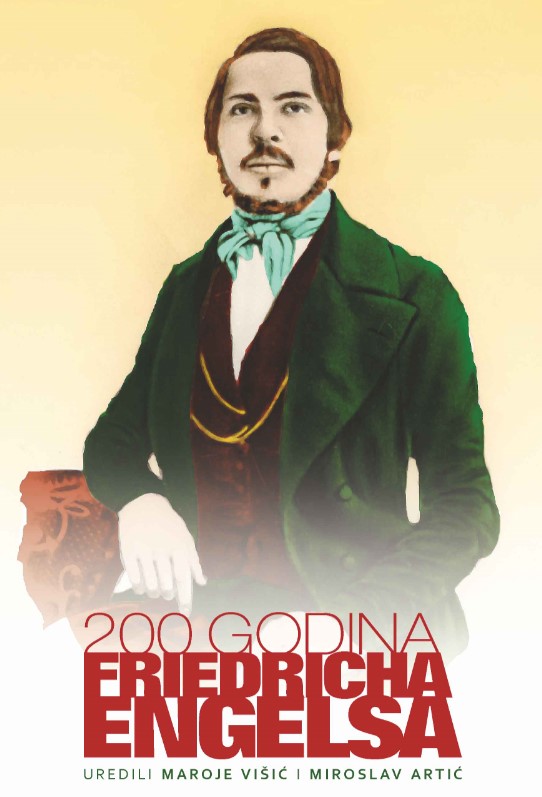
The paper aims to examine how Friedrich Engels was assessed in encyclopedias, professional lexicons and philosophy textbooks at the time when Croatia was a constitutive part of the former Yugoslavia. The methodological basis for the perception of Engels in Croatia is positioned within the framework of a predetermined concept according to which socialist culture was to be built in Yugoslavia, in all its parts, in the spirit of the ‘socialist worldview’ asserting ‘socialist values’. (Viskovic 2001). The aim of this paper is to evaluate this specific political and cultural period, marked by systematic attempts to create a comprehensive encyclopedic knowledge that would shape and finally define the dominant cultural and political sign empowered by Engels’ work. At the same time, its symbolic power had the task of illuminating the direction for the construction of complex Yugoslav socialist culture. This is only a sketch, but also an incentive for a more complex research of this unique conceptual project on the construction of socialist culture.
More...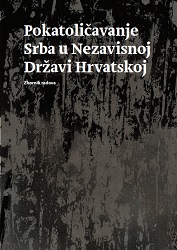
Jedna od najznačajnijih karakteristika Nezavisne Države Hrvatske (NDH) jeste neprijateljstvo njenog režima prema srpskom narodu i Srpskoj pravoslavnoj crkvi (SPC). Nijedna fašistička država koja je egzistirala tokom Drugog svjetskog rata nije sprovela tako široko zamišljeno i organizovano čišćenje državne teritorije od pripadnika neke tradicionalne hrišćanske zajednice kako je to učinila ustaška država kada je riječ o ekspulziji srpske pravoslavne zajednice. Riješenje srpskog pitanja u NDH pored direktne fizičke eliminacije podrazumijevalo je organizovano protjerivanje te ubrzanu i nasilnu nacionalnu asimilaciju. [...]
More...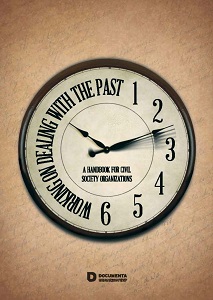
When talking to people from different sides of social divides, I have witnesses the fact that piety to ‘their’ victims is needed in order to establish normal relations with the living. As a child, I heard a neighbour, who lost her husband, saying that she expected the public not only to talk about fascist camps, such as Gonars to which my grandfather was taken from occupied Ljubljana in 1942, but also of prisons such as the one in which she herself was imprisoned after WWII in 1945. She wished that her suffering, from the hands of repressive institutions of that time, to be also remembered. Today we remember that some soldiers, who themselves were victims of Nazi crimes and prosecuted as partisans and communists, after the war became themselves violent prosecutors and torturers. Although emphasizing piety to all innocent victims is slowly becoming a widely accepted standard of political correctness, few countries have approached the ideal of overcoming divisions into ‘our’ and ‘their’ victims, in which conditions have been met to investigate circumstances of death and memory of all who had suffered.
More...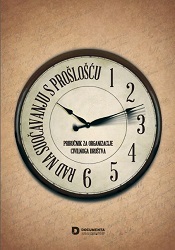
U razgovorima s ljudima s različitih strana društvenih podjela uvjerila sam se kako je za normalizaciju odnosa prema živim a neophodan pijetet prema ‘njihovim ’ žrtvama. Još u djetinjstvu čula sam od susjede koja je izgubila muža kako očekuje da se u javnosti ne govori samo o fašističkim logorima, poput Gonarsa u koji je iz okupirane Ljubljane 1942. odveden moj djed, nego i o zatvoru u kome je poslije Drugog svjetskog rata 1945. bila zatvorena i sama. Željela je da i njena patnja u rukama tadašnjih represivnih institucija ostane zapamćena. Danas pamtimo da su neki ratnici, koji su i sami bili žrtve nacističkih zločina i proganjani kao partizani i komunisti, poslije rata i sam i postali nasilni isljednici i mučitelji. Mada isticanje pijeteta prema svim nevinim žrtvama polako postaje prihvaćeni standard političke korektnosti malo se zemalja približilo idealu nadilaženjem podjela na ‘naše ’ i ‘vaše ’ žrtve u kojima su sazreli uvjeti za istraživanje okolnosti smrti i pamćenje svih stradalih.
More...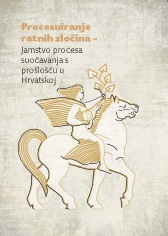
Neka od najtežih kršenja ljudskih prava mogu počiniti one institucije države čija je zadaća i svrha postojanja zaštita građana od nasilja i nepravdi. U pravnoj državi te institucije su, prije svega, policija i sudovi. Postupci korumpiranih policajaca i sudaca s pravom se doživljavaju kao posebno nepravedni i nemoralni. Ljudi koji su školovani i plaćeni da nepravde spriječe i ispravljaju, koriste se svojim znanjem i položajem da nepravdu ozakone i, često, da joj daju svoj doprinos. Pod korumpiranošću se obično podrazumijeva pristrano postupanje protivno pravilima i zakonima na koje se osoba javno poziva i koje je prema svom položaju dužna poštovati zato što je podmićena novcem. Osim materijalnog koristoljublja, pristrano postupanje protivno postojećim pravilima, zakonima i moralnim načelima može biti potaknuto sviješću da je takvo postupanje politički podobno, a da je ostajanje pri moralnim načelima nezdravo za karijeru. Taj oblik ‘’legalizirane korupcije’’ mnogo je opasniji jer predstavlja bolest društva, a ne samo izolirane slučajeve nepoštenih i nemoralnih pojedinaca.
More...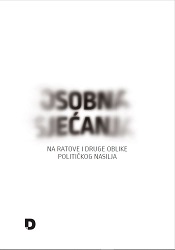
Studija slučaja „Španovica/Novo Selo/Španovica“ bavi se istraživanjem memorije o ratnim stradanjima i životu u ratu i miru u selu dvojnog imena: Španovica/Novo Selo, smještenom u blizini gradića Pakraca, tradicionalnog administrativnog i kulturnog središta zapadne Slavonije. Razdoblje koje studija obuhvaća relativno je dugo i traje od nastanka sela, 1886. unutar Austro-Ugarske Monarhije do danas. U tom razdoblju selo je prošlo kroz nekoliko masivnih povijesnih promjena: raspad Austro-Ugarske Monarhije, nastanak i nestanak tzv. prve Jugoslavije (Kraljevine Jugoslavije), kroz Drugi svjetski rat, novu socijalističku Jugoslaviju (SFRJ) i na kraju, rat u kojem se raspala i ta država. Selo je od 1991. godine u državnom kontinuitetu Republike Hrvatske.
More...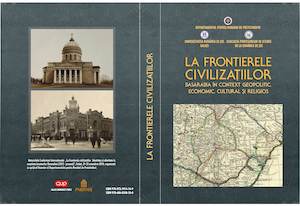
Anexarea Basarabiei şi încadrarea acesteia Imperiului Rus a dus, pe lângă alte schimbări, şi la o modificare a structurii confesionale a acestui teritoriu. Ne referim la faptul că în această regiune, datorită politicii de colonizare şi altor factori, au apărut, pe de o parte, o serie de curente religioase necunoscute până în acel moment în ţinutul dintre Prut şi Nistru, iar, pe de altă parte, la creşterea artificială numerică a altor curente religioase convenabile Curţii Imperiale de la Sankt‑Petersburg.
More...
Împlinirea unui secol de la răpirea Basarabiei de către Rusia ţaristă a prilejuit organizarea unor manifestaţii zgomotoase în Chişinău. La 3 mai 1912 a avut loc o adunare a zemstvei guberniale a Basarabiei sub preşedinţia directorului administrativ gubernial A. N. Iugan. Cu această ocazie, s-a discutat problema găsirii celor mai potrivite căi şi metode prin care să se convingă populaţia să vină la serbările ce se vor organiza pe 16 mai 1912. Autorităţile guberniale au decis ca în ziua jubileului să fie o adevărată sărbătoare. În acest scop, a fost aprobată suma de 20.000 de ruble pentru împodobirea şi iluminarea Palatului Gubernial din Chişinău şi alte 7000 de ruble repartizate celor şapte preşedinţi de judeţ. În total, pentru amintitele festivităţi s-au cheltuit 734.000 de ruble sau 1.800.000 de lei.
More...
În contextul discuţiilor aprinse din ultimul timp pe margi- nea legii privind acordarea cetăţeniei române basarabenilor şi bucovinenilor, mi-am pus întrebarea dacă cetăţenia ar putea fi un aspect al identităţii naţionale. În acelaşi timp am încercat să descopăr dacă în trecut a existat un alt moment de discuţii aprinse privind cetăţenia română a basarabenilor. Imediat după 23 august 1944 a existat un astfel de moment, în care soarta refugiaţilor din Basarabia şi Bucovina de Nord a depins de evoluţia discuţiilor în jurul articolului cinci al Convenţiei de Armistiţiu, privind cetăţenia acestor refugiaţi şi implicit a tuturor locuitorilor din teritoriile cedate în 1940.
More...
Anul 1940, an tragic în istoria românilor, a marcat sfârşitul graniţelor României Mari. Într-un context în care evoluţia ostilităţilor celei de-a doua conflagraţii mondiale a impus autorităţilor române o reorientare diplomatică, din mers, de partea Axei, politica internă fiind, de asemenea, afectată de considerente externe şi determinări care au adus atingere inclusiv coabitării populaţiei române cu una dintre etniile bine reprezentate în cadrul demografiei României , acest an a premers momentului care a marcat „fracturarea unei lungi convieţuiri”. Din această perspectivă considerăm utilă tratarea impactului evenimentelor din vara anului 1940 asupra locuitorilor de origine evreiască din Basarabia, condiţie a înţelegerii extinse a dimensiunii manifestării unui fenomen care a afectat poporul evreu la scară europeană.
More...
Articolul face referire la distrugerile suferite de biserici şi alte clădiri cu caracter religios din zona Bugeacului în anii celui de‑al Doilea Război Mondial. Ţinta studiului este stabilirea celor responsabili pentru distrugerile provocate pe durata conflictelor din regiune.
More...
Anul 1940 a marcat apogeul efectelor politicii dezas- truoase duse pe plan intern şi extern de către guvernele impuse de regele Carol al II-lea, începând cu 10 februarie 1938. Între 26 iunie şi 7 septembrie 1940, România s-a aflat la cheremul puterilor europene care hotărau, prin acţiuni politice, diplomatice şi militare, soarta unui continent scăpat de sub controlul democraţiilor lumii (SUA, Franţa, Marea Britanie), hipnotizate parcă de personalitatea şi acţiunea unor lideri ai forţelor extremiste, naziste, fasciste şi comuniste.
More...
Studiul de faţă are ca obiect de cercetare mediul intelectual din Republica Sovietică Socialistă Moldovenească (RSSM) în perioada anilor '50 – '80 ai secolului al XX-lea, văzut ca parte componentă a mediului intelectual din sistemul sovietic. Obiectivul urmărit este axat pe sublinierea transformărilor identitare de tip etnic şi social ale intelectualităţii din RSSM prin prisma constituirii şi evoluţiei sistemului totalitar de tip comunist, cu scopul de a evidenţia schimbările care au intervenit în acest grup social.
More...
Este cunoscut faptul că fenomenul educaţional a apărut ca o preocupare umană, încă din primele momente ale umanităţii, preocupare menită de a-i ajuta pe semeni să-şi perfecţioneze capacităţile de adaptare de care dispun la un moment dat. În problema scopurilor educaţiei, divergenţele au apărut mai târziu, atunci când a existat un interes în a trasa acele însuşiri umane spre care trebuie să se orienteze cu prioritate acţiunea educativă şi, legat de aceasta, a modului în care ar putea să fie influenţat individul prin educaţie. Subiectul prezentului studiu îl reprezintă analiza sistemului educaţional din perioada sovietică, aplicat la spaţiul Republicii Sovietice Socialiste Moldoveneşti (RSSM).
More...
Identitatea naţională se formează în epoca naţionalismului, atunci când societăţile s-au organizat conform principiului naţional. Procesul a fost cu certitudine dirijat de autorităţi, după ce au luat naştere pe parcurs instituţiile naţionale. Din acel moment limbii şi culturii majorităţii, tradiţiilor şi istoriei naţionale li se acordă un loc central. Rezultatul final al unui proces reuşit de construcţie naţională este, printre altele, crearea identităţii naţionale.
More...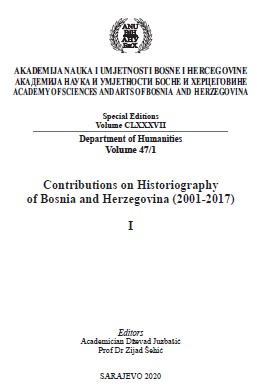
Based on the analysis and evaluation of the characteristics of historical science in Bosnia and Herzegovina over the period considered, several important facts need to be pointed out. The aggression against Bosnia and Herzegovina in 1992 had profound consequences on the state of Bosnia and Herzegovina's historiography and in its neighbourhood, and as a consequence there is an increased interest in the past and in seeking answers to current events in the past. Historical sciences have largely become an instrument of current policies, so little attention is paid to critical analyses of historical sources and their objective evaluation and interpretation. New interpretations of historical processes, while removing credible facts, have greatly influenced the formation of new approaches to historiography. Historiographic works are valued differently in Bosnia and Herzegovina, although many facts have been known before, so it is impossible to give a singular assessment of Bosnia and Herzegovina's historiography which considers the period of Austro-Hungarian rule in Bosnia and Herzegovina. Detailed insight into the structure of published historiographical works in Bosnia and Herzegovina shows that the treatment of certain aspects of Bosnia and Herzegovina's past is dominated by discussions, articles and short stories of unequal quality and scientific scope, as well as the lack of extensive, scientifically based studies, which are a prerequisite for the creation of historiographic syntheses. Although significant results have been achieved in Bosnian-Herzegovinian historiography in the study of political, economic and cultural developments in Bosnia and Herzegovina during the Austro-Hungarian period, there are several issues that have been neglected in historical science: the writing of a voluminous history of Bosnia and Herzegovina, the publication of source material of different provenance and thematic representation, study of population migration from 1878 to 1918, consideration of the economy and society of Bosnia and Herzegovina during the Austro-Hungarian rule of 1878-1918, review of socio-economic trends during the First World War, as well as depictions of Bosnia and Herzegovina in world travel literature.
More...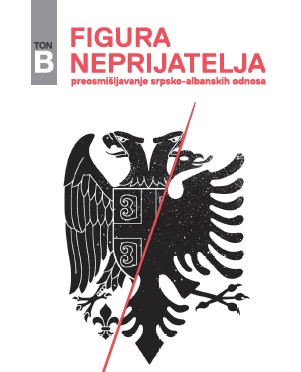
This paper aims to analyze the economic and political relations between Albania and Yugoslavia after the Second World War and their presentation on primary and secondary school history textbooks, by offering comparative approach of the way Albanian-Yugoslav relations are treated by different schools of historiography. On July 9, 1946 the Treaty of Friendship, Cooperation and Mutual Assistance was signed between the Albanian Prime Minister, Enver Hoxha and the Foreign Minister of Yugoslavia, Stanoje Simic. According to it, the two countries would take the necessary measures to ensure their independence and territorial integrity in case of aggression. They engaged to collaborate for the protection of international peace and security in conformity with the principles of the United Nations and confirmed their friendship by furthering the economic and cultural cooperation. The textbooks authors described the bilateral relationship as a result of the political intentions of Beograd to turn Albania into the seventh republic of Yugoslavia. It was perceived as “the other” in regard to Yugoslav efforts to exploit the weakness of the Albanian state and the risk of domination by a foreign power, claiming to represent it diplomatically. The inclusion of Albania in the Yugoslav Federation was argued in favor of solving the difficult problem of ethnic Albanians in the Yugoslavian state. Tito insisted on the impossibility to recognize the rights of Kosovo to self-determination because of the strengthening of Serb reaction. Due to the Yugoslav pressure, the Albanian leadership under the direction of Enver Hoxha was declared against the unification of Kosovo and Albania. History schoolbooks of both socialist and post-socialist period described the deterioration of the bilateral relations when the Albanian delegation headed by Enver Hoxha and the Soviet government ended an agreement in Moscow for the development of agriculture and industry and Albania received a Soviet loan. The Yugoslav leadership accused the Central Committee of the Albanian Communist Party of the anti-Yugoslav position, putting under pressure the government of Tirana. But it was the information about the Soviet Union Central Committee’s letters, criticizing the Yugoslav leadership for its domestic and foreign policy in deviation from the Marxist principles that helped the Albanian government deal with the pressure of Yugoslav authorities. It adopted unanimously the resolution of the Information Bureau of the Communist Parties, which broke off the Yugoslav-Albanian diplomatic relations in 1948 and shifted to the pro-Soviet orientation of the Albanian government.
More...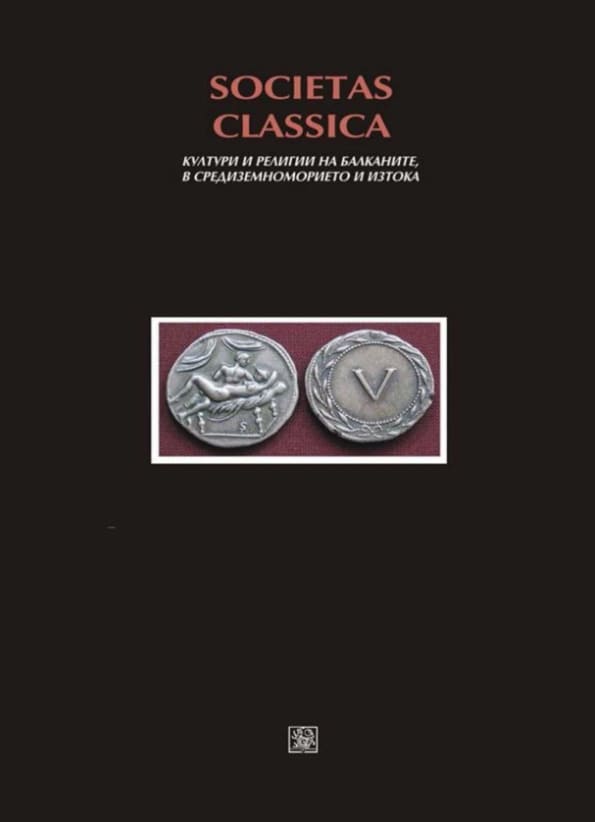
Many authors consider the 1980s as the time of the “Second Japanese miracle”. The decade has its tops and drops and has a long-term impact on Japanese socio-economic, political and cultural life. Thanks to the intensive implementation of the advances in scientific and technological progress and energy saving, Japan has managed to move from industrial to post-industrial society. The desire of the young Japanese to feel different, more special, their new musical preferences lead to the shaping of many subcultures that influence fashion, design, and music trends not only in Japan but also abroad. The development of animations and comics makes popular not only their creators but also many composers, performers and Japanese culture as a whole.Many authors consider the 1980s as the time of the “Second Japanese miracle”. The decade has its tops and drops and has a long-term impact on Japanese socio-economic, political and cultural life. Thanks to the intensive implementation of the advances in scientific and technological progress and energy saving, Japan has managed to move from industrial to post-industrial society. The desire of the young Japanese to feel different, more special, their new musical preferences lead to the shaping of many subcultures that influence fashion, design, and music trends not only in Japan but also abroad. The development of animations and comics makes popular not only their creators but also many composers, performers and Japanese culture as a whole.
More...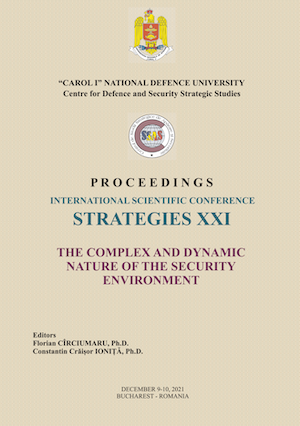
Over the course of millennia power laid in the hands of generals and rulers and their ability to act – but so did their downfalls. Thus, the first part of this presentation will be focused on the importance of strategy and tactics in any kind of rule. Furthermore, Japanese warfare will be anatomized – how the samurai became elite warriors, weaponry, the transition of samurai warfare during the Sengoku Period and its importance to the fight for supremacy between the Japanese Clans. The goal of this paper is to unravel the conundrums of The Age of War from a political frame of reference, under three powerful influences – Oda Nobunaga, Toyotomi Hideyoshi and Tokugawa Ieyasu. The discussion will then shift towards analyzing the impetus that put in motion their plans and the ways they achieved power, their brilliant strategies and their undoing, whilst using the knowledge regarding Political Science and International Relations to determine the political legacy of their actions.
More...